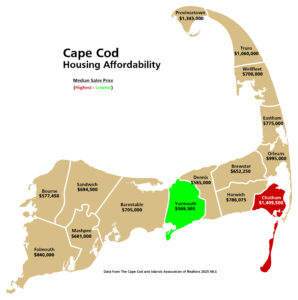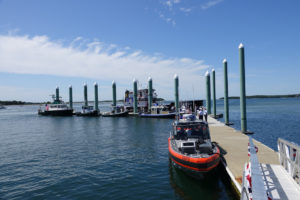
A group of male right whales surfacing together between feeding dives.
CREDIT: New England Aquarium, taken under NMFS Permit #19674
HYANNIS – A new study on critically endangered North Atlantic right whales showed that a new habitat may be important for the reproductive success of the animals.
A recent study showed that sexually mature female right whales that fed in the Gulf of St. Lawrence in Canada since 2015 were more likely to give birth compared to right whales that fed elsewhere in the same time period.
“The findings are particularly important because the Gulf of St. Lawrence is a relatively new habitat for this species, and we are still assessing how well the whales fare there,” New England Aquarium senior scientist Philip Hamilton said.
Aquarium officials state that periods of decreased reproduction have been a factor in the overall decline of the whale population, which is estimated to be less than 350.
The findings from the recent study come as Snow Cone, a right whale who has suffered multiple entanglements, was spotted in the Gulf of St. Lawrence on July 23 without her calf.
New England Aquarium officials report that her condition has worsened over the last few months.
Snow Cone’s calf was last seen in Cape Cod Bay in April. Researchers are still looking for the calf.
Climate change has made it so the whales can be detected in waters off Cape Cod year-round when they used to only spend part of the year in the area.
By Brian Engles, CapeCod.com NewsCenter
























